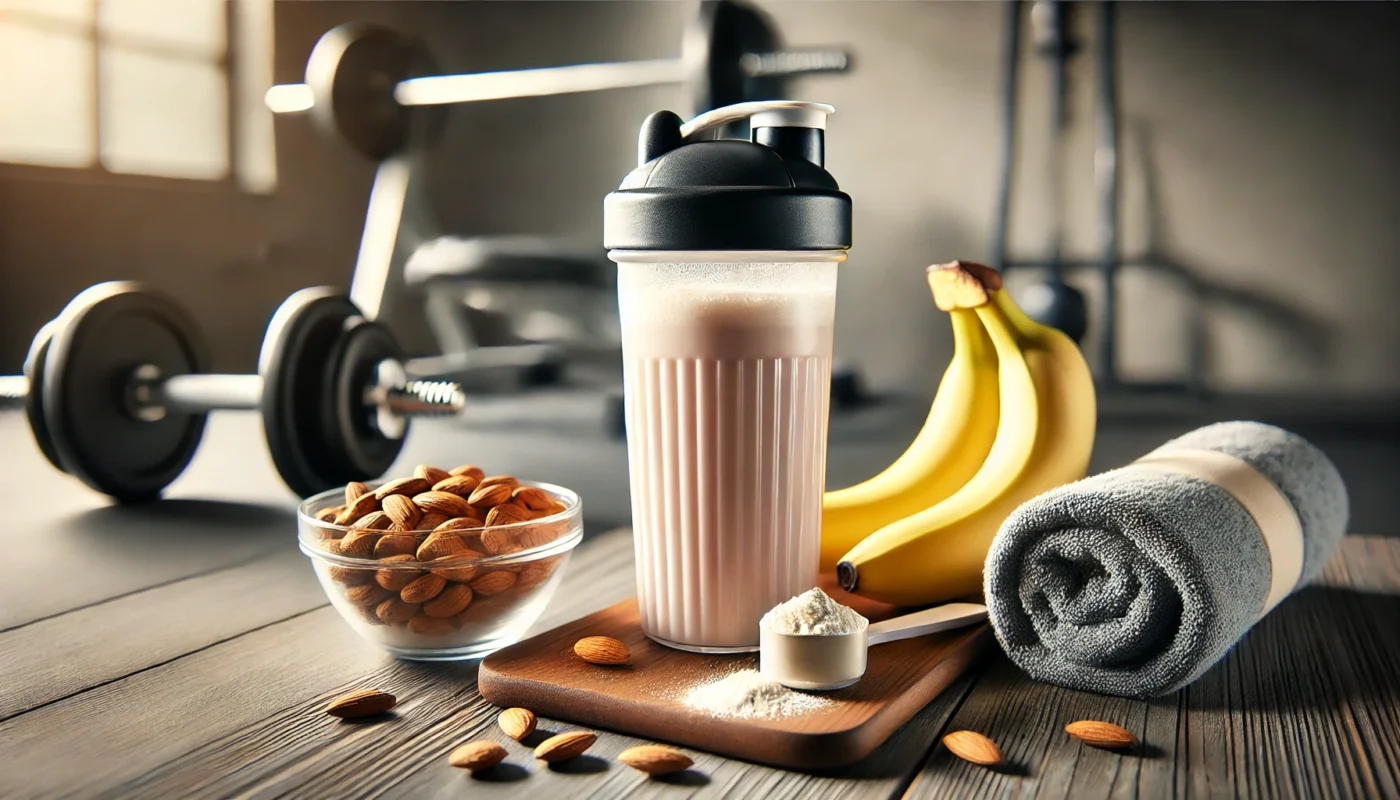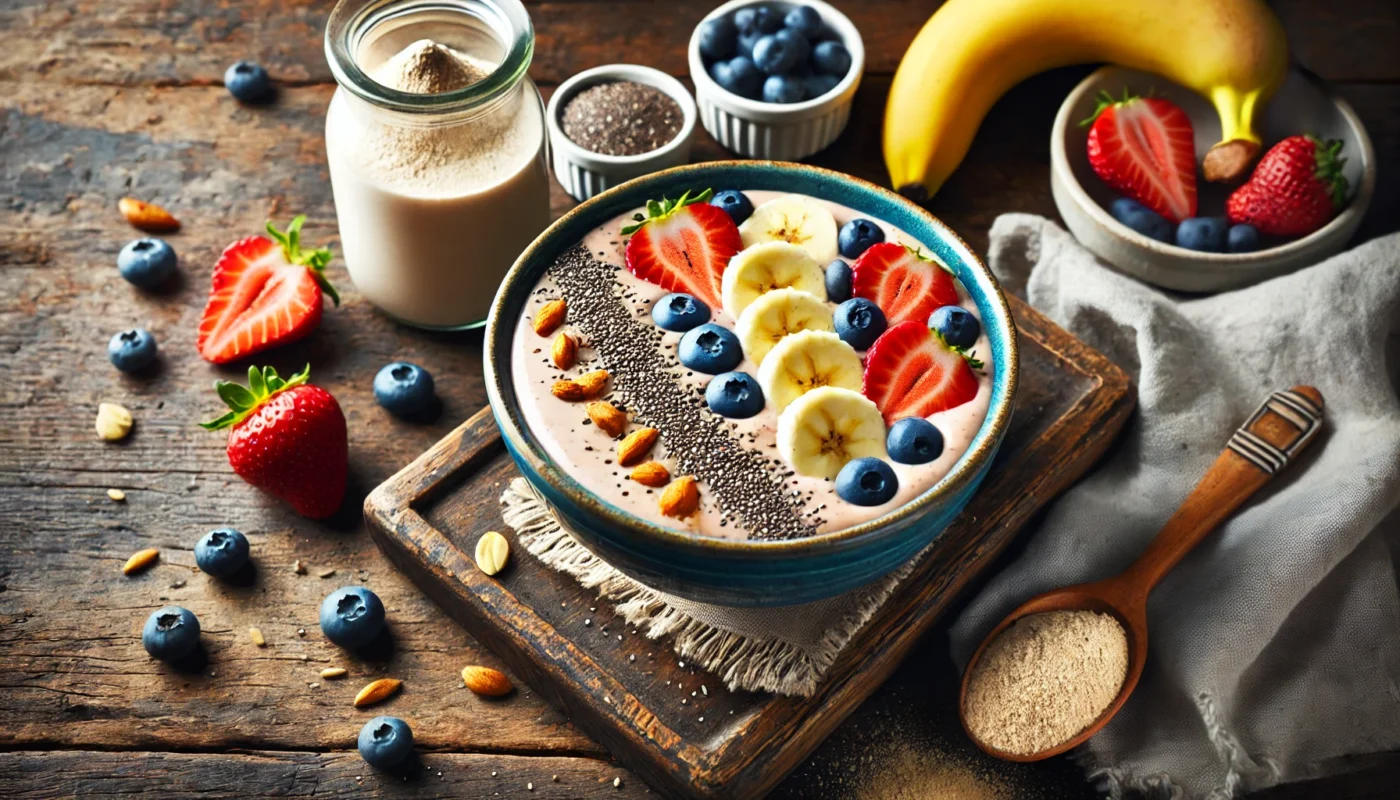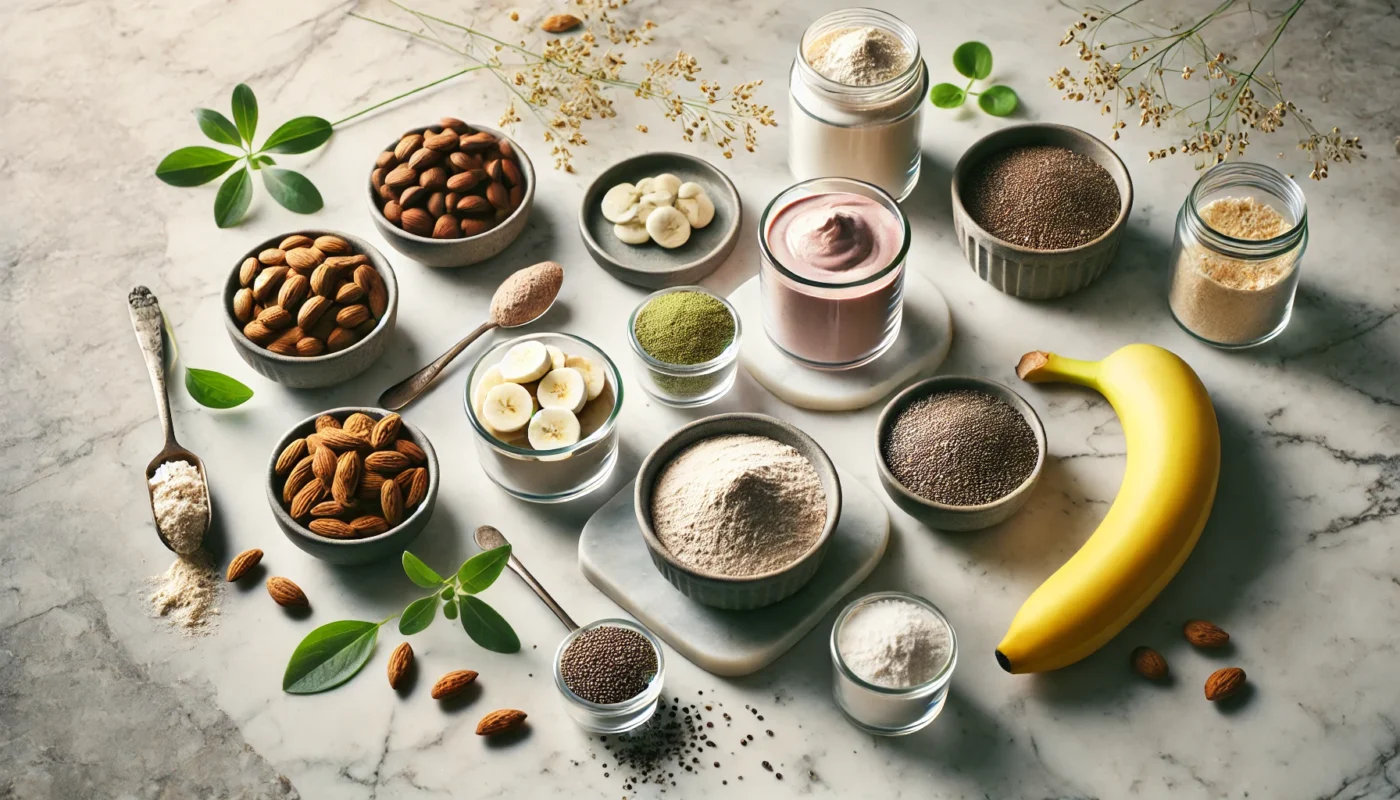Building muscle requires more than just hitting the gym. Nutrition plays a pivotal role in muscle growth and recovery. A well-structured grocery list can be your secret weapon in achieving those muscle-building goals. This article delves into the essentials of a muscle-building grocery list, exploring the scientific rationale behind each selection and providing practical advice on how to incorporate these foods into your diet. By the end, you’ll have a comprehensive understanding of how to fuel your body for optimal muscle gain.
You may also like: High Protein Foods to Fuel Workouts

The Foundation of Muscle Building Nutrition
Muscle building is fundamentally about achieving a positive protein balance within your body. To grow muscle, you must consume more protein than your body breaks down. This means your grocery list should prioritize protein-rich foods, but it should also include a balance of carbohydrates and fats, which are crucial for energy and hormone production. Let’s explore these foundational elements in greater detail.
Understanding Protein Balance
Achieving a positive protein balance is key to muscle growth. This involves consuming enough protein to not only meet your daily needs but to exceed the amount your body naturally breaks down. This surplus is what allows your muscles to repair and grow stronger. Timing also plays a role; spreading protein intake evenly throughout the day can optimize muscle protein synthesis.
The Role of Carbohydrates
Carbohydrates aren’t just an energy source; they play a role in protein sparing, ensuring that the protein you consume is used for muscle repair rather than energy. They replenish glycogen stores, providing the fuel needed for high-intensity workouts and aiding in recovery. Consuming the right types of carbohydrates at the right times can significantly impact your workout performance.
The Importance of Fats
Fats are often misunderstood but are essential for maintaining hormonal balance, which is crucial for muscle growth. They play a key role in producing hormones such as testosterone, a crucial player in muscle building. Including healthy fats in your diet can also provide a sustained energy source and aid in the absorption of fat-soluble vitamins.
Protein: The Building Blocks
Proteins are composed of amino acids, which are the building blocks of muscle tissue. When you engage in strength training, you create micro-tears in your muscle fibers. Consuming adequate protein helps repair these tears and build muscle. Here are some protein-rich foods you should add to your grocery list:
Lean Meats
Lean meats such as chicken breast, turkey, and lean cuts of beef are excellent sources of high-quality protein. These meats are not only rich in protein but also low in unhealthy fats, making them ideal for muscle building. They contain essential amino acids that support muscle repair and growth. Incorporating a variety of lean meats into your diet ensures a diverse intake of amino acids and nutrients.
Fish and Seafood
Fish, especially fatty fish like salmon and tuna, provide a dual benefit of high-quality protein and omega-3 fatty acids. Omega-3s are known for their anti-inflammatory properties, which can reduce muscle inflammation after intense workouts. Regular consumption of fish can enhance muscle protein synthesis and aid in recovery, making them a vital part of your muscle-building grocery list.
Eggs: Versatile and Complete
Eggs are a versatile and complete protein source, rich in essential amino acids. They are particularly high in leucine, an amino acid crucial for muscle protein synthesis. Eggs can be prepared in numerous ways, making them an easy addition to any meal. Including eggs in your diet can provide a quick and efficient way to meet your protein needs.
Dairy Products
Dairy products like Greek yogurt, cottage cheese, and milk offer both casein and whey proteins. These proteins are digested at different rates, providing a sustained release of amino acids to the muscles. Casein, in particular, is beneficial when consumed before bed, as it provides a slow and steady release of protein throughout the night. Dairy also offers additional nutrients like calcium and vitamin D.
Plant-Based Protein Sources
Legumes such as lentils, chickpeas, and black beans are excellent plant-based protein sources. They not only provide protein but also offer additional fiber, which aids in digestion and satiety. Including a variety of plant-based proteins in your diet can help diversify your nutrient intake and support muscle growth, especially for those following a vegetarian or vegan lifestyle.
Carbohydrates: Your Energy Source
Carbohydrates are crucial for replenishing glycogen stores, which are depleted after intense workouts. These glycogen stores are your muscle’s primary source of energy. Integrating the right carbs into your diet will support your workout performance and recovery:
Whole Grains for Sustained Energy
Whole grains like brown rice, quinoa, and oats are excellent sources of complex carbohydrates. They provide a steady release of energy, which is essential for sustained workout performance. These grains are also rich in fiber, which aids in digestion and helps maintain steady blood sugar levels. Including whole grains in your diet can enhance your energy levels and support muscle recovery.
Fruits for Quick Energy
Fruits such as bananas, berries, and apples provide quick energy and essential vitamins. They are rich in simple carbohydrates, which can be easily digested and utilized by the body. Consuming fruits before or after workouts can provide an immediate energy boost and aid in replenishing glycogen stores. Their natural sugars and antioxidants also support overall health and recovery.
Nutrient-Dense Vegetables
Vegetables like sweet potatoes, broccoli, and spinach not only offer carbohydrates but also vital nutrients that support overall health. These nutrient-dense foods provide vitamins, minerals, and antioxidants that are crucial for muscle recovery and immune function. Including a variety of colorful vegetables in your diet can enhance your nutrient intake and support your muscle-building goals.
Fats: Essential for Hormonal Balance
Fats are often misunderstood, but they are essential for hormone production, including testosterone, which is vital for muscle growth. Incorporate these healthy fats into your diet:
Monounsaturated Fats from Avocado
Avocado is rich in monounsaturated fats and provides essential vitamins and minerals. These healthy fats support heart health and hormone production, making them a valuable addition to your diet. Avocados are also high in fiber, which aids in digestion and satiety. Including avocados in your meals can enhance nutrient absorption and provide a satisfying source of healthy fats.
Nuts and Seeds for Healthy Fats
Nuts and seeds such as almonds, walnuts, flaxseeds, and chia seeds provide a combination of healthy fats and protein. They are rich in omega-3 fatty acids, which support anti-inflammatory processes in the body. Including a variety of nuts and seeds in your diet can provide essential nutrients and support muscle growth and recovery.
Heart-Healthy Olive Oil
Olive oil is a great source of heart-healthy monounsaturated fats. It is also rich in antioxidants, which can reduce inflammation and support overall health. Using olive oil in cooking or as a dressing can enhance the flavor of your meals while providing a healthy source of fats. Incorporating olive oil into your diet can support your muscle-building goals and improve overall health.
The Importance of Micronutrients
While macronutrients (protein, carbs, fats) are essential, micronutrients (vitamins and minerals) play a crucial role in muscle recovery and function. Here are some micronutrients essential for muscle building:
Vitamin D for Muscle Strength
Vitamin D enhances muscle strength and performance. Foods like fatty fish, eggs, and fortified milk should be on your list. Sun exposure is also a natural way to boost Vitamin D levels. Ensuring adequate Vitamin D intake can support muscle function and overall health.
Iron for Oxygen Transport
Iron is crucial for oxygen transport in the blood, which is vital for muscle function. Lean meats, spinach, and legumes are excellent sources of iron. Adequate iron intake ensures that your muscles receive the oxygen they need for optimal performance and recovery.
Magnesium for Muscle Function
Magnesium supports muscle contraction and relaxation. Incorporate leafy greens, nuts, and whole grains into your diet to ensure adequate magnesium intake. This mineral plays a key role in energy production and muscle health, making it essential for muscle building.

Planning Your Grocery Shopping
To make your grocery shopping efficient and effective, consider these tips:
Create a Detailed Meal Plan
Before heading to the store, create a detailed meal plan for the week. This will help you determine the exact quantities of each item you need, reducing waste and ensuring you have all the ingredients for your meals. A well-thought-out meal plan can also help you stay on track with your muscle-building goals.
Focus on Whole Foods
Most whole, unprocessed foods are located around the perimeter of the grocery store. Focus your shopping in these areas to find fresh produce, meats, and dairy. Choosing whole foods over processed options ensures that you are getting the most nutrients for your muscle-building efforts.
Be a Label Detective
When selecting packaged foods, read the labels to check for added sugars, unhealthy fats, or unnecessary additives. Opt for products with minimal ingredients. Understanding food labels can help you make informed choices and support your nutritional goals.
Putting It All Together: Sample Meal Ideas
Here are some sample meal ideas to incorporate the foods from your grocery list:
Energizing Breakfast
Start your day with scrambled eggs mixed with spinach and tomatoes, served with whole-grain toast. This meal provides a balanced combination of protein, healthy fats, and complex carbohydrates. Adding a piece of fruit or a glass of milk can further enhance your nutrient intake.
Balanced Lunch
For lunch, enjoy a grilled chicken breast with quinoa and a side of steamed broccoli. This meal offers a rich source of protein and complex carbohydrates, along with essential vitamins and minerals. Including a small salad with olive oil dressing can add healthy fats and flavor.
Nutritious Dinner
End your day with a baked salmon fillet paired with sweet potatoes and a mixed greens salad. This dinner provides high-quality protein, healthy fats, and a variety of nutrients. Adding a sprinkle of nuts or seeds to your salad can boost the nutrient content and add texture.
Satisfying Snack
For a quick snack, opt for Greek yogurt with a handful of almonds and berries. This snack offers a perfect balance of protein, healthy fats, and antioxidants. It is a convenient option that can keep you satisfied between meals and support your muscle-building goals.
Conclusion
Crafting a grocery list for muscle building involves more than just picking up random protein sources. It requires a strategic approach to ensure you’re fueling your body with the right balance of macronutrients and micronutrients. By understanding the importance of each food group and planning your meals ahead of time, you can create a diet that supports muscle growth, enhances recovery, and improves overall health.
Whether you’re a seasoned fitness enthusiast or just starting on your muscle-building journey, this grocery list will serve as a foundational tool in your quest for gains. Happy shopping and even happier lifting!
olive oil, muscle building, micronutrients, vitamin D, iron, magnesium, grocery shopping, meal planning, whole foods, healthy fats, nutrition, fitness, meal ideas, antioxidants, heart health
Further Reading:
The 25 Best Muscle Building Foods
7-Day Meal Plan for Muscle Gain
Important Note: The information contained in this article is for general informational purposes only, and should not be construed as health or medical advice, nor is it intended to diagnose, prevent, treat, or cure any disease or health condition. Before embarking on any diet, fitness regimen, or program of nutritional supplementation, it is advisable to consult your healthcare professional in order to determine its safety and probable efficacy in terms of your individual state of health.
Regarding Nutritional Supplements Or Other Non-Prescription Health Products: If any nutritional supplements or other non-prescription health products are mentioned in the foregoing article, any claims or statements made about them have not been evaluated by the U.S. Food and Drug Administration, and such nutritional supplements or other health products are not intended to diagnose, treat, cure, or prevent any disease.

